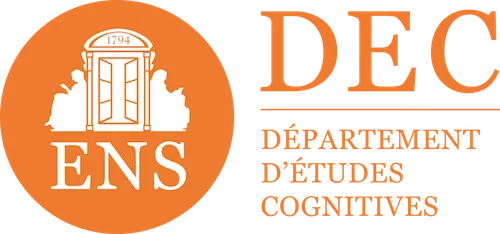

The Dunning-Kruger effect: when the illusion of mastery sabotages your skill development
You have just explained a new procedure to your team. Everyone agrees, asks a few relevant questions. You leave feeling confident: the message got through. A few weeks later, you discover that half of your employees are applying the procedure incorrectly. Welcome to the world of the Dunning-Kruger Effect.
This cognitive phenomenon, documented by scientific research, explains why so many courses fail. It reveals a troubling paradox: the more beginners we are on a subject, the more we tend to overestimate our level of mastery.
What is the Dunning-Kruger Effect?
The Dunning-Kruger Effect is named after David Dunning and Justin Kruger, psychologists at Cornell University. In 1999, they published a groundbreaking study that changed our understanding of learning.
The founding experience
The researchers ask 65 students to assess their skills in grammar, logic, and humor. Each participant must first estimate their performance relative to others and then pass objective tests in these areas.
The results are striking: beginner participants average performances that place them at the 12th percentile. In other words, 88% of the other participants do better than them. However, they estimate their performance at the 62nd percentile. A considerable gap between perception and reality.
The ignorance curve
This first study was replicated in numerous contexts: Car driving, medical skills, personal finance. The pattern remains the same.
Newbies cross four distinct phases :
- Phase 1 : Excessive trust despite a low level
- Phase 2 : Progressive awareness of their shortcomings
- Phase 3 : Underestimation of their skills (impostor syndrome)
- Stage 4 : Realistic assessment of their level of expertise
Neurologic mechanisms
Recent studies in neuroscience support these behavioral findings. The recording of brain activity via EEG shows that the lowest performing individuals mainly activate circuits related to familiarity (FN400 component), a vague signal that gives the illusion of competence without a real accurate memory. On the other hand, the most competent mobilize areas associated with detailed recollection (late parietal component), allowing them to make a more accurate assessment — sometimes even too careful.
Thus, the brain can literally generate a feeling of unfounded certainty. The Dunning-Kruger effect therefore does not reveal cognitive impairment, but rather a brain architecture that sometimes promotes a lack of awareness of one's own limits. A deeply human bias, which even experts are not safe from encountering in areas they know little about.
Why does this phenomenon hinder learning?
The Dunning-Kruger effect creates a vicious cycle that hampers progress. Understanding its mechanisms makes it possible to better protect yourself from them.
The illusion of mastery in action
Let's take the concrete example of training in commercial negotiation. After a 2-hour theoretical presentation, your salespeople think they have mastered the techniques presented. This illusion of control prevents them from:
- Ask in-depth questions
- Request additional examples
- Exercising enough
- Solicit constructive feedback
The consequences on motivation
Newbies who are victims of the Dunning-Kruger effect often develop false confidence. They are less committed to learning because they think they already know. This attitude generates several problems:
Lack of effort : Why train when you think you are already proficient?
Feedback resistance : Corrections are perceived as unjustified
Stagnation : The absence of questioning blocks progress
The gap between perception and reality
Cognitive science shows that our brains don't know how to distinguish familiarity from mastery. Recognizing information does not mean knowing how to apply it. This cognitive confusion explains why:
- A majority of learners overestimate their achievements after a master's degree
- Hot reviews are often disconnected from real performance
- Skills transfers in professional situations are massively failing
How Didask gets around this cognitive trap
At Didask, we have developed a scientific approach to counterbalance the Dunning-Kruger effect. Our method is based on three pillars validated by cognitive science research.
1. Ongoing formative evaluations
Unlike traditional training, we integrate assessments throughout the learning journey. These micro-evaluations immediately reveal the shortcomings and break the illusion of control.
Scientific principle : Testing yourself and taking the risk of making a mistake forces the brain to confront its beliefs with reality.
Didask app : The presentation of new concepts is immediately followed by practical exercises allowing the learner to manipulate this new knowledge, to possibly make mistakes, and to correct himself.
2. Immediate and personalized feedback
Our platform generates instant feedback that is adapted to each learner. This feedback acts as a cognitive mirror that reveals gray areas.
Scientific principle : Corrective feedback allows the brain to readjust its perception of its own skills. Without this feedback, the illusion of control persists and is amplified.
Didask app : Our Educational AI analyzes each answer and offers targeted explanations. It identifies reasoning errors and guides the learner to good understanding.
3. Realistic situations
Our courses include practical cases that faithfully reproduce real application conditions. This approach reveals the gap between theoretical knowledge and operational competence.
Scientific principle : Research shows that skills acquired in an artificial context are poorly transferred to a real situation. Situations create a cognitive bridge between training and application.
Didask app : Our training platform offers interactive simulations where the learner must make decisions in situations similar to those he might encounter in his daily professional life. These exercises instantly reveal false beliefs.
This approach respects the natural phases of learning:
- Revelation : New exercises reveal the shortcomings
- Reconstruction : Personalized explanations fill the gaps
- Consolidation : Varied exercises anchor good practices
- Transfer : Complex cases prepare for real application
The Dunning-Kruger effect is not inevitable. By understanding its mechanisms and by applying the right teaching strategies, you can transform your training into real levers for increasing skills.
At Didask, we put cognitive science at the service of effective learning. Our platform natively integrates solutions to avoid cognitive pitfalls and guarantee measurable progress.
Make an appointment directly with our eLearning experts for a demo or simply more information.












